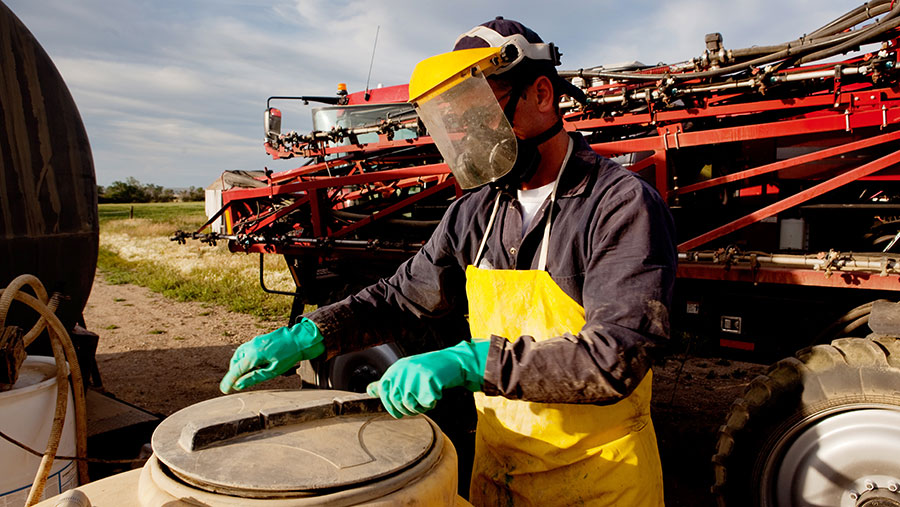Farm Safety Week: Latest HSE fatality figures are ‘sobering’
 © Tyler Olson/Adobe Stock
© Tyler Olson/Adobe Stock The number of deaths on British farms fell significantly in the past year, but a leading farm safety group says the “sobering statistics” are a wake-up call for an industry with the poorest safety record of any occupation in the UK and Ireland.
The latest Fatal Injuries in Agriculture report, issued by the Health and Safety Executive (HSE) at the start of Farm Safety Week (18-22 July), reveals that 25 people were killed on farms in England, Scotland and Wales in the past year, compared with 41 in the previous 12-month period.
See also: Boots and Heels: Farm Safety Week 2022 – Part One
The fatal injuries were made up of 22 farm workers and three members of the public, including a nine-year-old child.
The death toll is the second lowest recorded in the past five years and seven fewer than the five-year average of 32.
The oldest farmer killed was 85, and 40% of those killed on farms were over the age of 65.
In Northern Ireland, there were a further six fatalities on farm from April 2021 to March 2022, accounting for 33% of all workplace fatalities in the province and taking the UK total to 31.
Agriculture has the worst rate of worker fatal injury per 100,000 of the main industrial sectors: 21 times higher than the all industry rate.
Farm deaths in Great Britain, 1 April 2021 – 31 March 2022
Eight people were killed after they were struck by a moving vehicle – incidents involved tractors, all-terrain vehicles, a 4×4 vehicle, an HGV vehicle and a telehandler
Five people were killed after they were struck by an object – incidents included trees, a tyre, and bales
Four people were killed after being in contact with machinery – incidents involved a horse walker, a log splitting machine, a trailer tailgate, and a tractor topper
Two people were killed after falling from height – incidents included falls through fragile roofs
Two people were killed after being injured by an animal – incidents involved a cow, and a herd of cattle (cows and a bull)
Two people were killed when trapped by something collapsing – incidents involved a vehicle, and a seed drill
Two people were killed by asphyxiation/drowning – incidents involved slurry fumes, and a drainage barrel
Farm Safety Week
The Farm Safety Foundation, which organises Farm Safety Week, is focusing this year’s campaign on 10 “farm safety heroes” who have worked tirelessly over the past decade to reduce the injury risk to farmers and farming families across the UK and Ireland.
The core message of the initiative, now in its 10th year, is to encourage farmers to make farms safer places to live and to work.
Stephanie Berkeley, Farm Safety Foundation manager, said: “Despite an encouraging improvement in the HSE figures over the past year, these are very sobering statistics.
“The fact remains that, over the past year, 25 people lost their lives on GB farms, so awareness may be one thing, but the time has come for action.
“This is why, a decade on, a focus like Farm Safety Week is still important. When many voices join together to drive a change, this is when it can happen. We should be farming safely every day of the year, not just during Farm Safety Week.”
Throughout #FarmSafetyWeek the NFU will encourage farmers to sign up to a new online learning course the union has developed with Lantra, in conjunction with HSE.
The training will remind farmers about the risks of working at height or with cattle, the importance of wearing a helmet when riding an ATV, and following the Safe Stop procedure for vehicles: engage handbrake, controls in neutral, switch off engine, remove key.
Sue Thompson, head of agriculture at the HSE, said: “I congratulate the Farm Safety Foundation for the great work it has done over the past 10 years to raise the profile of farm incidents and their consequences.
“However, there are farming families left devasted every year when their loved ones are badly injured or killed while doing their jobs. We are starting to see safety improvements in some areas, but the pace of change is slow.”
- Farmers Weekly’s Dying to Feed You campaign aims to highlight those “near misses”, when people in agriculture could very easily have lost their lives, but still have to contend with the life-changing consequences of a farm accident.
